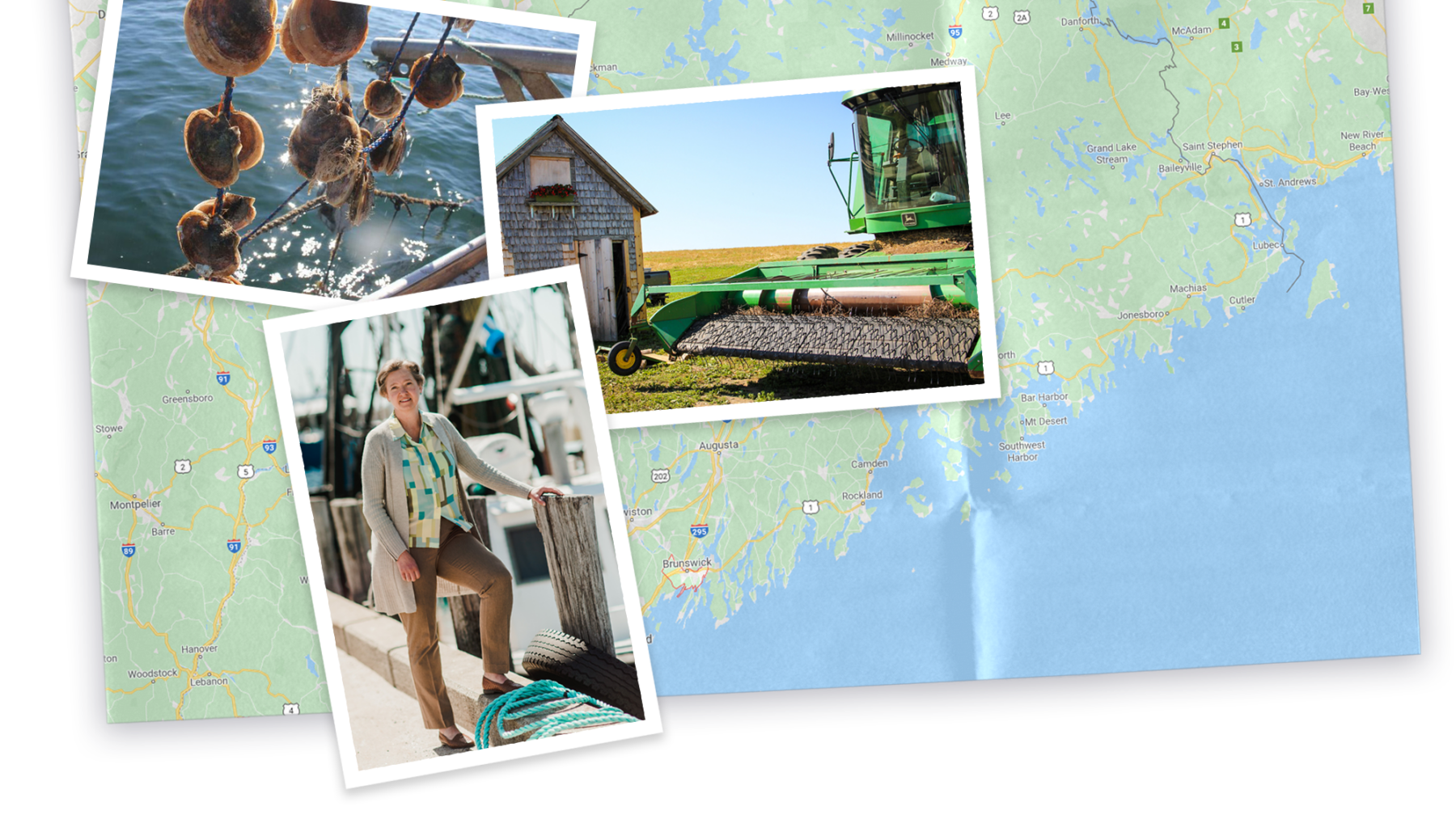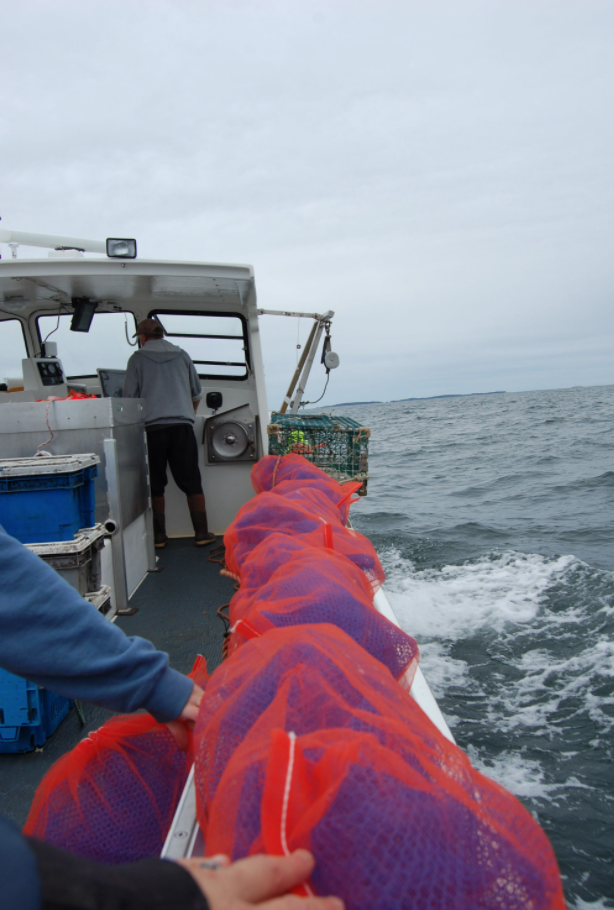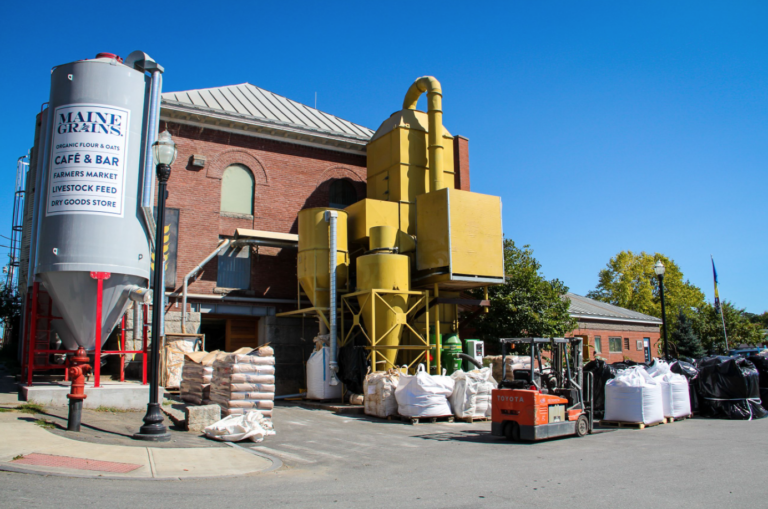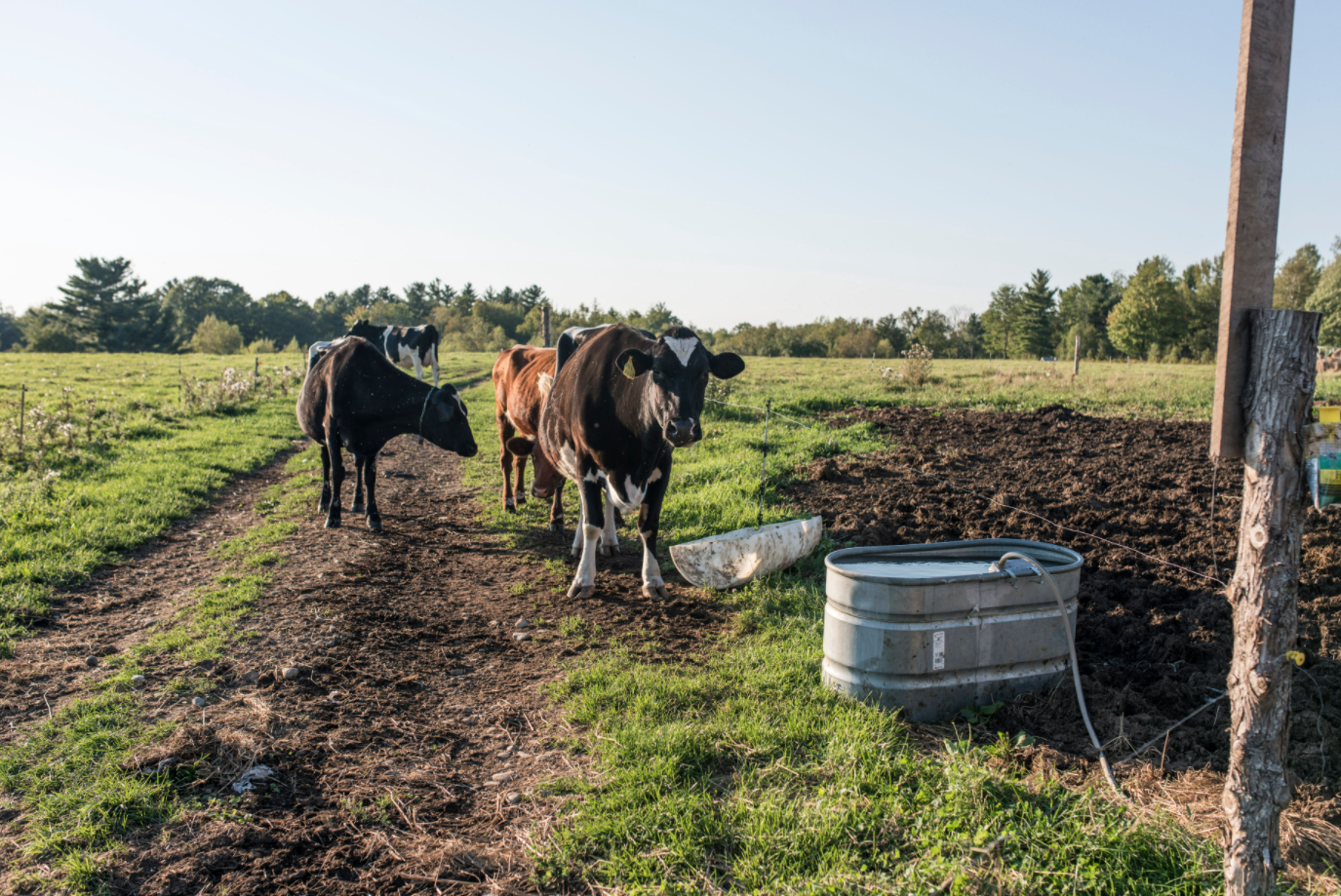
Betsy Biemann leads Coastal Enterprises, Inc., a community development organization in Maine that partners with local farms, fisheries, and other small businesses to strengthen the state’s local economy.
Photos courtesy of Christina Wnek and Coastal Enterprises, Inc.
Growing returns
“We are working every day to build a society and economy that enables everyone to reach their full potential.”
These days, America’s breadbasket is the Midwest. But in the mid-1800s, American grain production flourished in a different and perhaps unexpected place.
“Maine used to be considered the breadbasket of New England … a lot of wheat and barley was grown here,” says Harvard College alum Betsy Biemann, A.B. ’86, a seasoned nonprofit leader and a resident of the state for the past 17 years. But as railroads and waterways enabled the export of cheaper crops from the Midwest, milling moved westward and Maine’s grain production dwindled, leading to the shuttering of mills and the loss of a local trade.
Grain production is among a number of Maine industries that have seen a decline over the past century, a reality that Coastal Enterprises, Inc. (CEI) — the social enterprise nonprofit Biemann leads — is looking to change by investing in local businesses, one by one. Since its founding in 1977, CEI has focused on building resilience in rural communities by revitalizing their local economies. Biemann describes CEI’s mission as geared toward growing “good jobs, green businesses, and more broadly, shared prosperity across Maine, but also across rural New England and rural America … Small businesses transform rural economies and communities.”
A child and grandchild of immigrants, Biemann saw firsthand how her family’s hard work — coming to the United States and making a home and life here — had paid off. And yet, on a post-college Rotary fellowship teaching in Kenya, she witnessed the hard-working community around her struggling to secure that same basic quality of life. It became clear to her that many of their struggles were rooted in place, race and economic circumstance, something she found distressing — and motivating. “I felt that everyone should have that opportunity to work hard and to earn a decent living and raise [a] family in a place that’s safe.”
Biemann brings that core belief to CEI. Under her leadership, CEI’s work today includes business coaching for local entrepreneurs, as well as small business financing (ranging from much-needed “microloans” as small as $10,000 to loans of over $1 million for catalytic projects that are a springboard for good jobs and more vibrant communities).


Through a combination of trainings and financial support, CEI invests in Maine’s local food economy one small business at a time, including scallop larvae collections on the Gulf of Maine and grain processing at Maine Grains in Skowhegan.
Photos courtesy of Coastal Enterprises, Inc.

Bò Lait Farm in Washington, Maine, was out of operation since the mid-1970s. Today, thanks to a loan from CEI, the dairy farm is thriving.
Photo courtesy of Sean Alonzo Harris
The ethic of Mainers — which Biemann characterizes as a mix of independence, pragmatism, community-mindedness, and the hardiness which develops during long, harsh winters — plays a role in CEI’s holistic approach. “One of the wonderful things about Maine is that we can’t afford to not work together,” Biemann says. “We don’t have the resources that many other places have … so folks are always ready to come together when there’s a good idea or an opportunity.”
CEI has found one such opportunity in the rise of local, sustainable aquaculture — environmentally responsible fish and aquatic plant farming. Building on Maine’s storied tradition of commercial fishing and lobstering, the state has recently become a destination for planned land-based finfish farms as well as smallholder shellfish and kelp production, providing a sustainable alternative to imported seafood. In an effort to expand the burgeoning industry and build on and sustain Maine’s working waterfront in its many coastal towns, CEI has offered hands-on courses for kelp, mussel, and oyster farmers. And the organization has facilitated sea scallop farming tech transfers between shellfish growers in Maine and a group from Aomori, Japan, where a long-time sea scallop industry exists.
CEI’s (and Biemann’s) focus on “shared prosperity” is rooted in the idea that a rising tide must lift all boats. Investing in local business owners allows them to invest in their employees through living wages, benefits, and training, thus ensuring a more profitable business, a healthier, more empowered workforce, and ultimately, a more vibrant economy.
And it’s showing results. Over the past four decades, CEI has invested $268 million in 2,303 local businesses and projects, from clean energy to craft beer — with the latter becoming something of an economic engine in the state, reportedly generating $168 million in revenue in 2017. “I’ve lived in Maine for 17 years and Maine has gone from 25 to over 150 craft breweries,” Biemann says.
CEI has also financed and advised farmers, food manufacturers and hospitality-related businesses that have contributed to the state’s vibrant tourism industry and supply nationally-regarded chefs with premium local meats, seafood, vegetables and baked goods. One of those businesses, Maine Grains, is located in a renovated historic jailhouse in the town of Skowhegan and mills organic wheat, rye, and other grains in response to the increased demand for artisanal flours.
Fields of grain are returning to Maine, this time as part of a thriving 21st century industry.
This story is part of the To Serve Better series, exploring connections between Harvard and neighborhoods across the United States.




